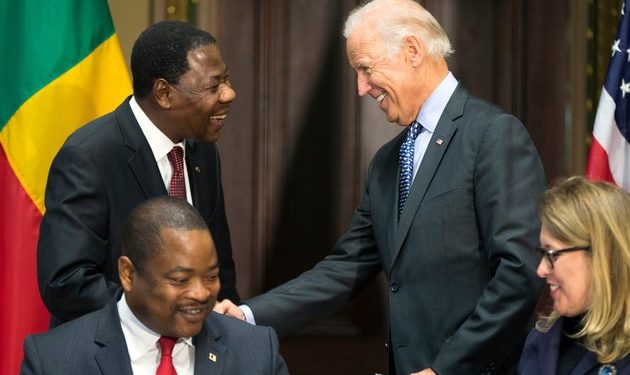JOHANNESBERG, SOUTH AFRICA – Biden administration officials say they are serious about global climate change, and that they are demonstrating their intent with an initiative that funds projects across the African continent.
Climate change, poverty and economic growth – these three indicators, the U.S. leadership says, are inextricably linked in the fight against environmental degradation in the developing world.
But to make change happen, they need money. Enter the Millennium Challenge Corporation, an independent U.S. agency that gives out big grants to modernize infrastructure, address policy reforms, and promote growth in sectors that affect everyone in the economy, from the youngest child to the most ambitious entrepreneur.
Acting CEO Mahmoud Bah explained in a call with journalists on Monday.
“These grants are large, multi-year and predictable,” he said. “These are not loans and they do not add to the country’s debt burden. Our compacts tend to pair large investment in infrastructure in sectors like water, energy, agriculture with institutional and policy reforms that ensure those investments have a significant and sustainable impact.”
What that looks like on the ground, he explained, is this: hundreds of millions of dollars poured into developing nations – most of them African – for hydropower projects, agricultural improvements, better access to electricity and land reform.
Neither Bah nor his deputy, Alexia Latortue, explicitly mentioned China, which is rapidly rolling out development across Africa through an ambitious infrastructure project known as the Belt and Road Initiative. Latortue sought to distinguish the American way of doing business.
“MCC’s three strategic priorities are inclusion and gender, catalyzing the private sector, and thirdly, climate,” she said. “… And if there’s one takeaway I have for you, it’s that the three priorities are all about helping to achieve high-quality growth.”
And, she said, the U.S. has proven this commitment.
“MCC recognizes that climate change is absolutely linked to poverty and economic growth,” she said. “Indeed, MCC was an early leader in fighting climate change in developing countries, investing in the past five years alone, over $1.5 billion dollars, which is about 38% of our program of funds, in climate-related activity. Our climate work covers adaptation, climate resilience and mitigation.”
And the corporation has made a new goal: more than half of their funds in the next five years will be used for climate change work around the world.






